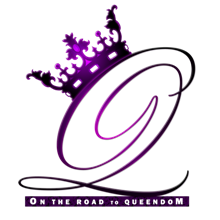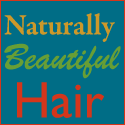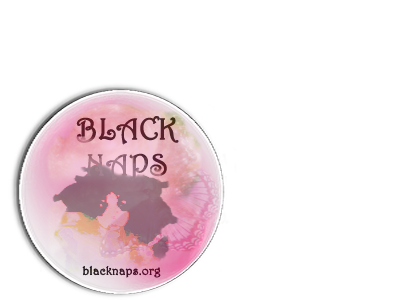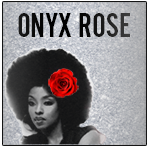Wednesday, September 9, 2009
SHAMPOO FREE..
Why go Shampoo Free?
Going shampoo free is easier on your hair's health, your wallet, and your time. For $5 you can purchase enough baking soda and apple cider vinegar to take care of your hair for months, whereas $5 could barely buy you one bottle of commercial shampoo! When done correctly, your hair won't smell, feel oily or dry, and be healthier and happier then when you were using shampoo. It will be easier to manage and stay clean for much longer (some people don't experience greasiness ever again once they've returned their hair to it's natural state). Anyone with small children who hasn't used baby shampoo will be aware of how, even after days and days of toddler mayhem, even after playing and sweating, their hair does not get greasy. I know I'm always amazed that even after waking up sweaty Tempest's hair can be soft, silky and smell nice.
Your hair is a very important part of your body that's often overlooked. On top of accentuating your style and appearance, your hair can give you clues to your health. Greasy, limp hair can be a sign of bad diet while brittle and dry hair can be a sign of malnutrition and undernourishment. If you're anemic, deficient in calcium or other vitamins, your hair and fingernails will give you some of the first clues. Taking proper care of your hair and returning it to it's natural state may be one of the best things you can do for your appearance, you may find you'll learn a lot more about your hair that you never realized you could know!
What's so bad about shampoo anyway?
Shampoo is a detergent, just like laundry detergent, dishwashing powder and the stuff you use to clean your bathroom. It cleans out the dirt in your hair, but is very harsh and also takes the natural oils that make your hair shiny, soft and strong. Shampoo wasn't introduced until the early 20th century, before that many people used soap. Soap can wash your hair without removing as much of the natural oils that shampoo does. Unfortunately, it doesn't stand very well in alkaline water. When mineral levels in water began to rise, that made soap a messy, poor item to wash with. It causes 'soap scum' rings around your tub and on your shower doors. Alkali (hard water) makes the scales on your hair stand up, feel rough and get tangled. When washing with water with a higher alkaline content and soap, the "soap scum" gets all tangled up in your hair, is much harder to wash out, and creates a big mess. Shampoo came out on the market just in time, displaying it's only real benefit: it behaves similarly both in hard and soft water. Therefore it was a "Superior" product to an old favorite, soap. But it didn't come without problems. Because shampoo is harsh enough to strip the natural oils from your hair, you need something to replenish them. So, conditioner was born. You need to wash your hair every day not because it gets dirty, but because the oils from the conditioner don't last and need to be replenished.
The oils in your hair come naturally out of your scalp to nourish it. Stripping them away causes damage, and breakage over time. In a way you do need conditioner, if you use shampoo - because it covers up the damage that's been done. But you don't need shampoo in the first place, all you're spending your money on is a big bottle of perfumed detergent.
Most shampoos contain mineral oil. A byproduct of the distillation of gasoline from crude oil, mineral oil is what's left over. It's so abundant that it costs more to dispose of it then it does to package and sell it, so it ends up everywhere. It's added to shampoos and conditioners to give hair an artificial shine caused by coating it with a thick oil. Mineral oil cannot absorb into your skin like other oils do, so it sits on top and forms a barrier preventing oils and toxins from being released as a normal part of your skin's lifecycle. This is one of the reasons you'll find that the more shampoo you use, the more often you need to use it. In the long run, coating your hair with mineral oil makes it weaker, and more prone to damage.
If mineral oil doesn't bother you, maybe the other ingredients will. SLS and SLFS (sodium lauryl sulfate, sodium laureth sulfate) are skin and eye irritants that also acts as a foaming agent in soaps, shampoos, toothpastes, dishwashing liquid. and just about anything that produces a foamy lather. The Materials Safety Data Sheet cautions to avoid body contact with SLS, it also puts infants and children (whose eye are developing at a more rapid rate) at risk for improper eye development when it's absorbed through the skin and accumulates in eye tissues. Because of residual levels in internal organs, it's questioned how safe our current rates of exposure are. "Debunkers", and companies who sell products containing these ingredients claim that the short exposure (shampoo and rinse) isn't enough for it to build up, and that by itself, in the dilution present within the product, the ingredient won't cause damage. This is basically true, however neither take into account recent reports (within the last five years), exposure due to the amount of products which contain SLS/SLFS and how often we use them, and the known chemical reaction with other ingredients commonly found in these products. While not carcinogens, both these substances, when mixed with other ingredients commonly found in shampoo bottles, may cause carcinogenic nitrates to form. Using it in moderation, and even in high amounts probably isn't going to kill you - but it's certainly not improving your health. The suggested safe percentage of SLS or SLFS to be used in products like shampoo and toothpaste isn't adhered to as often as it should be.
Previously, I've done a complete extensive post on the dangers and ingredients in most ( not all ) shampoos.
I find this topic to be one of importance, for hair and health reasons. So I've included it in this post also.
How do I go shampoo free?
Use one tablespoon of baking soda per one cup of warm or hot water. You can double or triple the recipe if you have very, very long or thick hair. But do not use more baking soda, your hair will become hard, dry or feel brittle if you use too much. You can put this mix in a recycled shampoo bottle, and apply to your hair with warm water.
The mix should not feel gritty, and should be a liquid. If you have very short or thick hair, you may find it easier to make a paste with a tablespoon of baking soda (or less) and sprinkle it over very wet hair and massage in. Otherwise, spray or pour the mixture onto your hair and work it in. Let it sit about a minute, and then rinse. I personally find it easiest to make a liquidy paste in the palm of my hand with about half a tablespoon, and then sprinkle and massage into dripping wet hair. I have very short hair, so I use less. Experiment and see what works best for you, there are no official rules.
For a typical rinse, make up a solution of one to two tablespoons of Apple Cider Vinegar (ACV) per cup of water. Apply to wet hair, massage into scalp and rinse off with cold water. Please note, you don't always have to apply a rinse with every wash! I personally find I only need to do a rinse every 2-3 washes.
What do these ingredients do?
Apple cider vinegar is a mild acidic made from fermenting apples, the acid content is usually only around 3-5% in store-bought ACV. It has a lot of health benefits when taken internally, too! When used on your scalp, it helps promote circulation, acts as a natural antiseptic, and dissolves excessive fatty deposits and reduces scaling or peeling of the skin. As for use on hair, it helps to clarify, de-tangle, balances hair's pH level and seals the cuticles. Some people are bothered by the smell, but be assured that the smell should dissipate within a moment or two of rinsing. If it doesn't, you're using too much in your solution!
Baking soda is the weakest alkali of sodium compounds, it would take using a lot to do damage to your skin or hair. It has a lot of useful properties like deodorizing, leavening (for baking), whitening, polishing and clarifying. You only need a little bit, regardless of what you're using it for. Just like with vinegar, a little goes a long way. Plain water can remove almost all the dirt you can get in your hair, but a little baking soda can not only remove the rest, but take care of the build-up from hair products, shampoos and anything else you might pick up. Some people find that over time, using baking soda in their hair will lighten the colour - although most agree that if this happens you're using it too much, and perhaps not using enough ACV. Once or twice a week is fine, even less if your hair is in very good condition or easy to manage.
Use warm water to wash or clarify, this opens up your hair cuticles and helps your conditioner or rinse penetrate the hair. Use cool water on low pressure to rinse to close the cuticle, cut down on frizzes, soften hair and enhance curls.
Help! This isn't working!
Long Hair:
Comb your hair from scalp to tips before you go into the shower to loosen dirt and de-tangle. You may need to use a bit more baking soda in your mix (one tablespoon per 250mls/1 cup of water. If you need more, use two tablespoons and two cups, or three tablespoons and three cups. Don't overuse your baking soda, or you will end up with dry hair! Less is more
Frizzy Hair:
You're probably using too much baking soda, or leaving it in your hair too long. Try adding honey, or rubbing a little bit of moisturizing oil onto your hair (coconut, jojoba, sweet almond, extra virgin olive oil.).
Greasy Hair:
Some people experience an adjustment, or "de-tox" period of greasiness as they transition to no-poo. Do not over-wash, it will pass soon! If you've been using your routine faithfully and experience greasy hair, try using less ACV in your rinse, cut out honey if you've been using it, try switching to a citrus rinse, or use a comb instead of a brush to style your hair.
If you have greasy hair and need a quick fix on a day when you're not washing your hair, try applying a tiny bit of cornstarch to your scalp and combing through to the ends. Remember, greasy hair does not mean dirty hair, it probably doesn't need to be washed!
Dry hair:
If your hair is very dry, you may have used too much baking soda and should lesson the amount. You may also need to use more ACV in your rinse. Also, try smoothing a tiny bit of oil into your hair either after you shower, or in the morning. A tiny bit is all you need. Coconut oil works well, and smells great!
If you find your hair is chronically dry, and you like the idea of a hot oil treatment every so often, you can follow one of these recipes, the latter is best for dry hair and the former is a hot oil treatment for occasional use :
-- 1 teaspoon soybean oil
-- 2 teaspoons castor oil
Combine ingredients then warm on low heat. Massage mixture into the scalp and hair. Wrap hair in a hot towel for 15 minutes. Shampoo & rinse out.
-- 1/2 cup of dried rosemary leaves
-- 1/2 cup olive oil
Combine ingredients then heat up until warm. Strain. Coat the entire scalp and ends of hair with the oil mixture. Wrap hair in saran wrap and a towel over that, leave on for 15 minutes. Wash hair twice to remove the oil. Use this treatment twice a month or when your needs a deep conditioning. Leaves your hair shiny and re-hydrated.
If you want, or need the occasional deep condition, especially if you have very long hair with breakage at the ends, you can try a mix with one small jar of real mayonnaise and 1/2 of an avocado. Mash them together in a bowl with your hands until it's a minty green colour, then smooth onto your hair. Put on a shower cap, or wrap your hair in saran wrap and leave on for 20 minutes before thoroughly rinsing clean. If you're using this only for the tips of your hair, or for very short hair, half the ingredients.
If you swim regularly in pools, or have very chlorinated water you may find your hair dries easily. To help prevent chlorine damage after you've gone swimming, try mixing one egg, one eggshell's worth of olive oil with one quarter of a peeled cucumber. Blend together, spread evenly onto hair, leave in ten minutes and then rinse well. See also [I have hard water!]
If you regularly blow-dry, stop! Scrunch with a towel and then let your hair air-dry. Curling, straightening or kinking your hair using hot irons can also attribute to drying and breakage. You can also try using a boar-bristle brush to brush your hair with, this will distribute your hair's natural oils evenly. Though be warned that you don't need to use it all the time, and using it too much might actually make your hair feel more oily then usual!
White Build-up:
You're probably using too much baking soda! Remember, you only need one tablespoon per cup (250mls) of water, for long hair, you only need a maximum of 2-3 tablespoons. It doesn't seem like much, but it goes a long way. For easier distribution, keep a little cup with some baking soda in the shower and take a pinch and apply to wet hair, then rub in.
Itchy hair/scalp:
Try infusing your rinse with tea tree, rosemary or lavender essential oils (only a few drops at the most!) Try changing your rinse routine. Add a bit of honey, try a rosemary tea rinse. experiment! For itchy scalp caused by build-up or dryness, try adding a few pinches of brown sugar (not white, as it will dissolve) to your wash and rubbing it through. Be sure to rinse thoroughly. If you use any oils on your scalp (like jojoba, or coconut), stop and see if that makes a difference. See also [I have hard water!]
Dandruff:
Skin cells flake and slough off the body all the time, normally skin go through the cycle of dying and being replaced once a month. If this process is sped up and the skin cells aren't removed, you get dandruff. Although the real causes of dandruff are still unknown, most theories involve the sebaceous glands being plugged, or overproducing.
To help control dandruff you can use a mild acidic solution on your scalp, before shampooing, about twice a week.
-- 1/2 cup Water
-- 1/2 cup of White Vinegar
Combine ingredients then apply directly to the scalp. Use before shampooing. Apply twice a week.
If you're using any oils on your scalp (coconut, jojoba, etc - not essential) stop and see if that helps. Also try adding some brown sugar to your baking soda wash and massage it into your scalp to help slough away flakes. Don't use white sugar, it will just dissolve.
Limp or weak hair:
You are over-conditioning! Cut back on how often you use a conditioning rinse. If you're using hot oil treatments, try going a little longer between them. Think about which moisturizing ingredients you're using in your routines, and cut back where you can.
I have hard water!
There are several things you can do if you have hard water, which can be very drying and cause damage to hair. If you can afford to install a water softener, which range anywhere from a few hundred to over a thousand dollars, have it done. If you can't, use distilled water or boiled water to wash your hair with. It won't remove all the impurities, but it can make a difference.
I currently do not use shampoo of any kind on my hair. Instead I simply co -wash with my favorite conditioner with a touch of baking soda and extra virgin olive oil. I looooove it and my hair loves it as well.
ENJOY !!!!
Posted by Unknown at 7:18 PM
Labels: shampoo free
Subscribe to:
Post Comments (Atom)






















0 comments:
Post a Comment